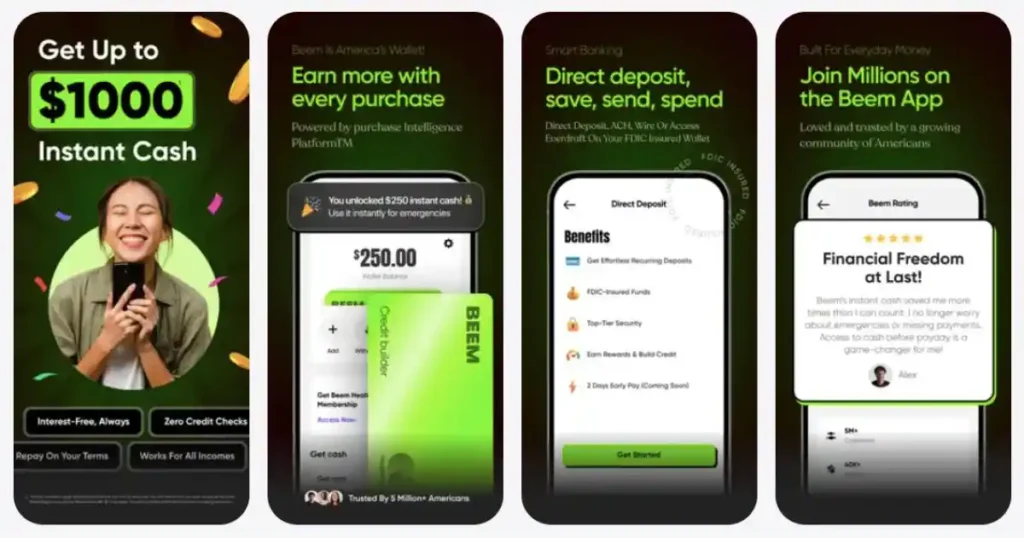Table of Contents
Why Dispatch and Logistics Are Natural Next Steps
The delivery and logistics industries are booming, all thanks to rising demand and online shopping. This growth creates thousands of new jobs in logistics management and dispatch roles. Food delivery drivers have a perfect foundation for these roles. You already know which route works best, are familiar with traffic patterns, and know how to manage pressure and time effectively. So this experience in the past gives you a strong base upon which to build.
Transitioning into dispatch or logistics allows you to stay in the same field but on a larger scale. Companies want people who understand the challenges drivers face every day. Your knowledge of delivery operations gives you a massive advantage over other job candidates.
Understanding Dispatch and Logistics Roles
What Do Dispatchers and Logistics Coordinators Do?
Dispatchers deal with routes, make schedules, and keep the drivers updated, making sure that the deliveries are made on time. They track orders, then guide drivers, and also keep customers informed. On the other hand, logistics coordinators look after managing warehouse flow, planning transportation, and checking inventory. Both dispatchers and logistics coordinators play a crucial role in solving problems quickly, avoiding delays, and ensuring the delivery process runs smoothly.
Key Differences from Delivery Driving
The primary focus of delivery drivers is getting orders from point A to point B, whereas dispatch and logistics roles are more behind the scenes. You need to work with software, manage schedules, and guide drivers. This means you need to be less on the road and be very precise and keen in planning, communication, problem-solving, and decision-making. You can perform all these tasks from an office or control room setting.
Read related blog: Emergency Cash For Delivery Drivers: A Step-by-Step Guide
Essential Skills for Dispatch and Logistics Careers
Communication and Coordination
If you have good communication and coordination skills, it will make the dispatch logistics role trouble-free. It is very important to have effective communication because there are times when you need to handle calls from drivers, answer customer questions, or coordinate multiple deliveries simultaneously. According to research, 50% of the customers are more likely to opt for the competitors if they are unsatisfied with the service. That is why clear and polite communication is essential. You can give answers only when you are a good listener and respond quickly, so things run smoothly. Whether it is about updating a route or solving a delay, strong coordination skills help you avoid the confusion and keep everything on track.
Tech Savvy and Software Proficiency
Today’s dispatch and logistics jobs rely on technology. Thus, you will be expected to use software for scheduling, routine, and order tracking. Apps like GPS, real-time tracking apps, communication tools, etc., are part of daily life and thus need software. If you know how to handle these devices, your work can be done quickly, you can solve problems quickly, and you can stay organized. Being tech-savvy is not just a reward, but it is essential in keeping things efficient to ensure every delivery reaches the right place and time.
Problem-Solving and Decision-Making
Every morning in dispatch and logistics brings something unexpected, such as a missed order, a sudden delay, or a traffic jam. It is your job to handle all these things so the work does not slow down. That’s why quick reading matters a lot. You have to decide what comes first, adjust routes, and, most importantly, stay calm to make the correct decisions and solve problems. This helps avoid big troubles and keeps everything moving smoothly, even when the plan does not go as expected.
Read related blog: Food Service Workers: How to Upskill for Shift Leader
Upskilling Strategies for Delivery Drivers
On-the-Job Learning
The best way to start upskilling is by learning from where you are currently working. You should observe how dispatchers manage routes, how they talk to drivers, and how they solve the daily challenges they face. If you have any doubts, ask questions, take notes, and observe how logistics workflows are handled from behind. Every single shift gives you a chance to learn something new. Watching how the whole team works helps you understand the bigger picture. On-the-job learning helps you learn the software and tools they use and the mindset they apply to keep things on track. This type of learning is free, simple, and valuable.
Formal Training and Certifications
Now, taking the next step often involves formal training. Many short-term courses in logistics, supply chain management, or the dispatch process can help you strengthen your skills and confidence. Many programs are flexible and made for working professionals. If you have certificates like CLTD (Certified in Logistics, Transportation, and Distribution) or a logistics coordinator certificate, it helps employers understand that you are serious about the job. These qualifications can open doors to superior roles, higher pay, and a more stable career path within the growing logistics industry.
Building Transferable Skills
Working as a delivery driver helps you build strong skills to carry into dispatch and logistics. You are ready to handle this responsibility if you can easily deal with customers’ queries, stay on time, and be reliable daily. These are not just soft skills; they are essential in logistics. By proving how delivery experience helps you shape problem-solving and time management, you can demand to move into a more advanced role.
Read related blog: Delivery Drivers: Upskill for Operations & Fleet Management
Steps to Stand Out and Get Promoted
Volunteering for Extra Responsibilities
One of the best ways to get noticed is when someone needs help. For example, you can assist in small dispatch tasks like routing or scheduling during your free time. You can ask to follow the dispatcher, or you can help solve minor delivery issues. Sharing ideas to improve the delivery flow shows that you are thinking beyond just your own shift. Some managers appreciate team members who take initiative. Volunteering for extra responsibilities proves that you are ready for more. It also puts you at the head of the line when promotion opportunities pop up.
Networking and Seeking Mentorship
Business growth often starts with the right connections. You need to take the initiative to talk to dispatchers, supervisors, or anyone already in logistics. Showing interest, asking questions, and learning from experiences. You never know whether a quick chat or helpful advice can lead to a bigger opportunity. You can join local or online industry groups or attend workshops and stay active in the field. These help you build a strong network, update, and meet the right people. Also, if you have a good mentor or contact, they can help you plan your next move.
Documenting Achievements
Keeping track of your work is the smallest and smartest thing to do when targeting a promotion. You need to note down things like on-time rates, customer satisfaction, and the number of successful deliveries. Also, highlight how often you have stepped in to help the team or taken extra shifts. Being reliable and consistent matters, and having proof of this makes a big difference. Small wins can make a substantial difference when it is time to apply for a new role. Documenting your achievements shows that you took initiative and helps others see the real value you bring.
Read related blog: Delivery Drivers: How to Train for Logistics Careers
Overcoming Challenges in the Transition
Adapting to Office-Based Work
Switching from road life to office work can take time. The pace feels different, and the routine might not be as flexible as you are used to. You need to adjust set schedules, team meetings, and more structured workflows. Moving to office roles also comes with new dynamics, such as working with a team, following processes, and handling tasks requiring focus for extended periods. At first, it might be a little unusual, but with time, you become normal. To get updated, ask questions, stay open to feedback, and give yourself space to settle in. The skills you’ve already built on the roadside can help you adapt faster than you think. It’s just a new rhythm, not a whole new world.
Learning New Technologies
When entering logistics, you must get comfortable with new technology and systems. You will be working with software that needs to handle scheduling, real-time tracking apps, and routing. Good knowledge and learning about how to read data and use tools help you make smarter decisions and thus improve delivery performance. It might be tricky, but some platforms are designed to be user-friendly. Take your time, ask for help when needed, and stay curious; the more you explore, the faster you get the hang of it.
Read related blog: Front Desk Associates: Upskill for Hotel Careers
How Beem Can Support Your Career Growth
Beem isn’t just a budgeting app; it can be your career assistant. Use it to set aside money for courses, certifications, or online training without stressing your finances. With Beem’s Budget Planner, can track your progress, log completed training, and even note career milestones. It helps you stay intent on your goals. Need a reminder for an upcoming job application or interview? The app can keep you on schedule.
Beem’s Everdraft™ feature assists users in managing unforeseen costs, avoiding late fees, and maintaining financial control. Reduced financial stress enables a more explicit focus on career objectives and upskilling, ultimately leading to a more secure future. Whether planning your next move or managing daily tasks, the platform gives you the tools to stay organized and in control. It’s a smart way to stay career-ready while building the skills to move from delivery driving into dispatch and logistics one step at a time.
FAQs – Delivery Driver to Dispatch/Logistics Careers
What skills do I need to move from delivery to dispatch?
To move from delivery to the dispatch role, you need to develop and sharpen your communication, problem-solving, organization, time management, and stress management skills. You also need to be an expert with dispatching software and show strong customer service and technical expertise.
Are logistics certifications required for dispatch roles?
Logistics certifications are not strictly required for dispatch roles, but they are often preferred and can significantly strengthen your career possibilities.
How can I gain experience in logistics while driving?
Suppose you want to acquire logistics experience while driving. In that case, you can actively observe and understand the flow of goods, then learn about delivery routes, and also gain knowledge about the technology being used in logistics operations.
What challenges should I expect in the transition?
You encounter many difficulties when you move from a delivery driver to a dispatcher or logistics position. For example, you might confront competition, acquire new skills, and adapt to new responsibilities. Learning about logistics technologies, route optimization, driver performance management, and customer expectations is essential. However, it goes beyond this; it also involves monitoring compliance with rules and handling complex situations such as traffic and unforeseen delays.
How does Beem help with career advancement?
By providing early access to verifiable revenue and intelligent financial tools without the drawbacks of traditional loans, the platform Everdraft™ feature promotes professional advancement. It helps users in managing unforeseen costs, avoiding late fees, and maintaining financial control. Reduced financial stress enables a more explicit focus on career objectives and upskilling, ultimately leading to a more secure future.
Conclusion: Drive Your Career Forward – Transition to Dispatch & Logistics
Learning new technology, being proactive, and improving skills can lead to real opportunities in logistics and dispatch. You need to build on your delivery experience, as you already have a strong base for it. Tools like Beem can help you keep track of your objectives and budget growth. Moving into a better role is possible and achievable with the right attitude and support.














































